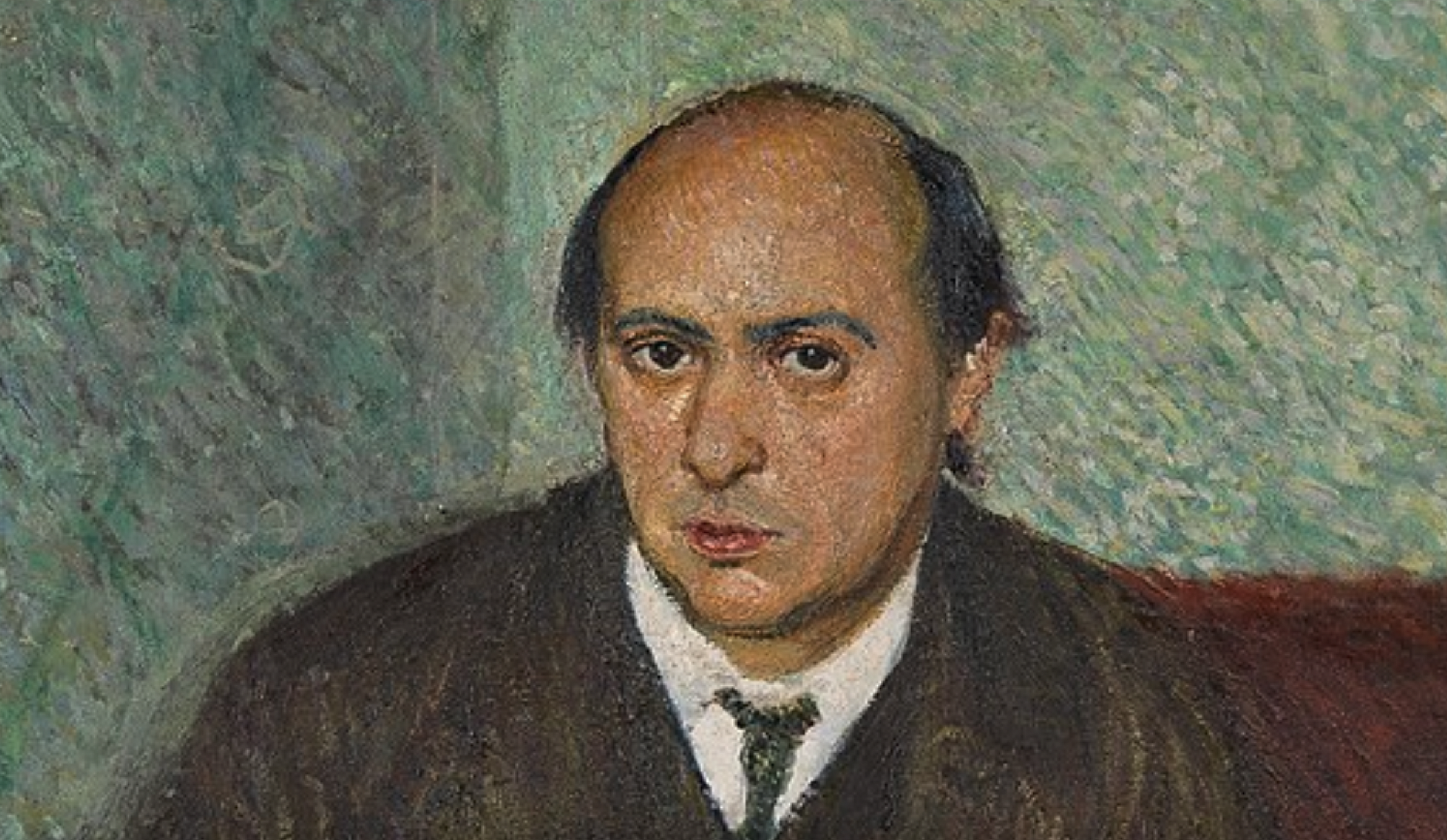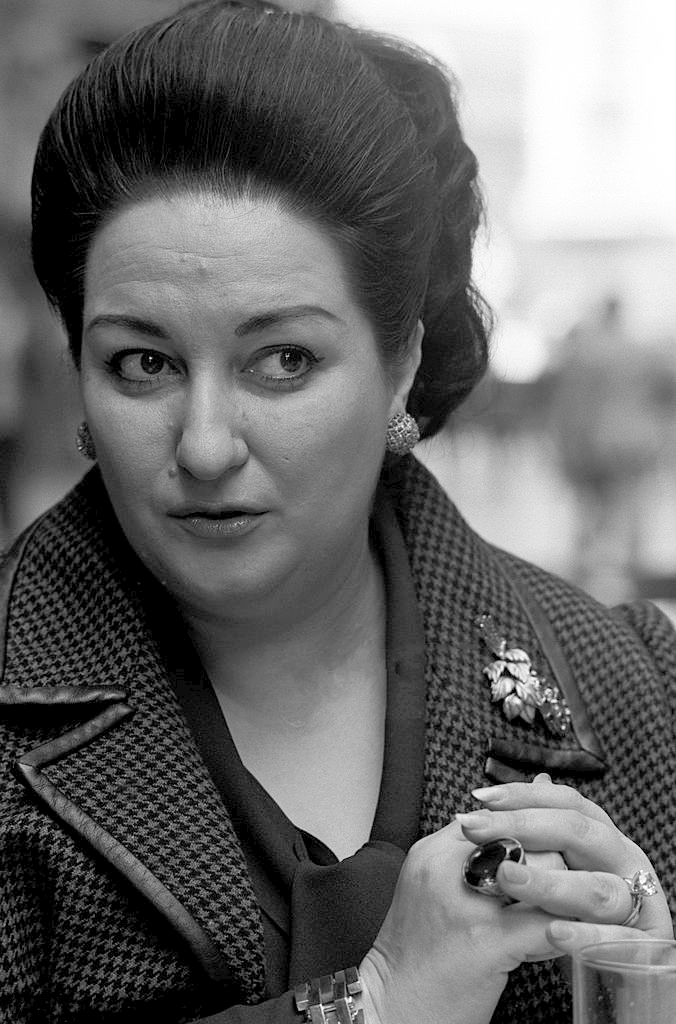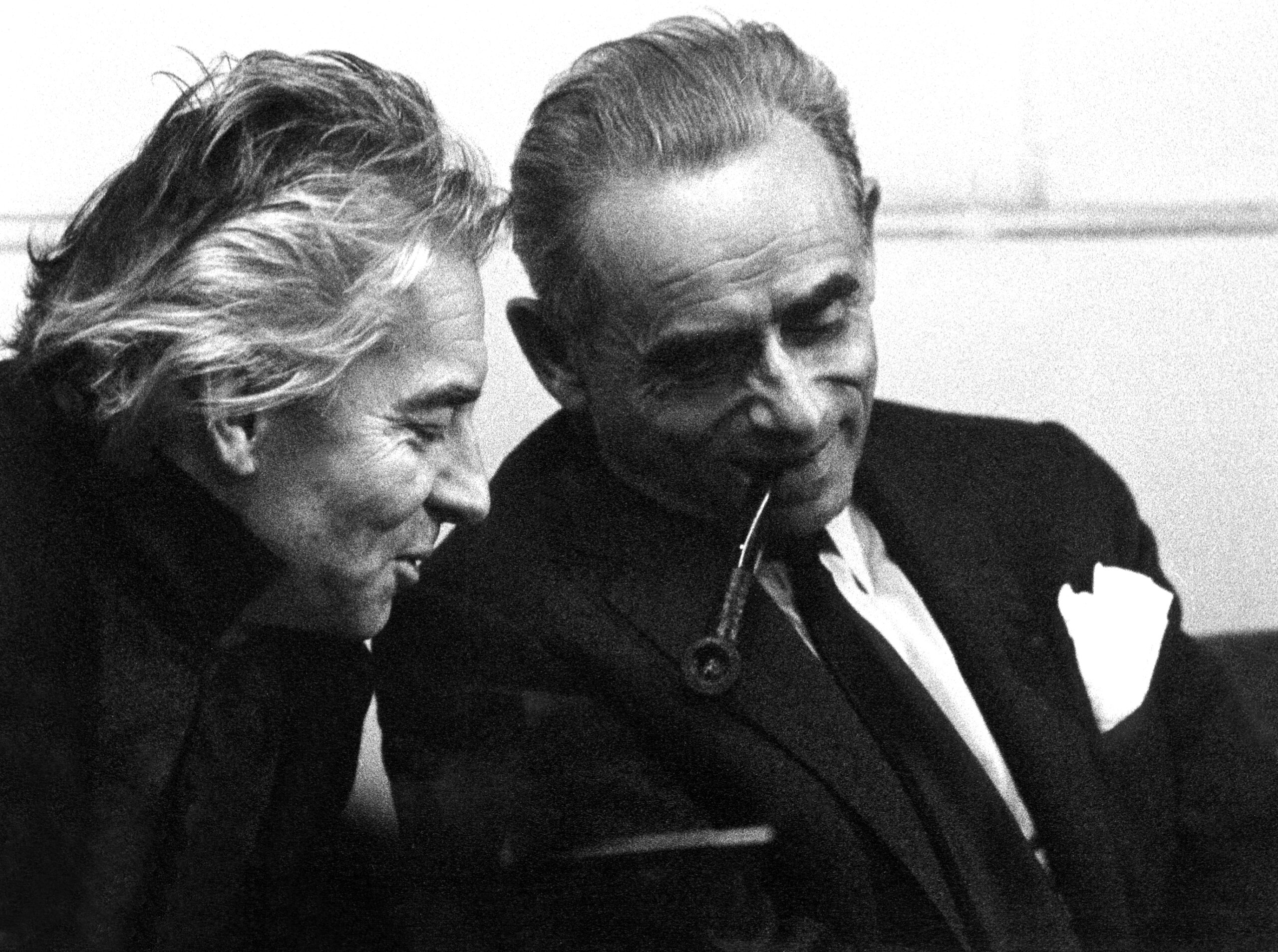21 November 2024
P.R. Jenkins
Spotlight Blacher: Five orchestral works

Boris Blacher (1903 – 1975) was – together with Orff – the contemporary German composer Karajan performed most often but unfortunately there are no recordings either in the studio or in concert. Karajan had Blacher’s “Konzertante Musik” in his luggage when he embarked on one of the most important tours in his career, the first American tour as new chief conductor of the Berlin Philharmonic in spring 1955. Obviously, this was the kind of modern German music Karajan wanted to present with his orchestra and he may also have found the glittering brass sound suitable for the American audience. The piece was written in 1937 and Richard Osborne reports that Karajan – “a Blacher fan” – had already programmed it in Aachen in 1939 (this event is not listed in our data base). After the American tour, he conducted the “Konzertante Musik” in four concerts in 1958, one of these at the World’s Fair in Brussels (in this radio interview Karajan announces it for the upcoming concerts).
Blacher’s most popular work for orchestra, the “Paganini Variations”, was written in 1947 and Karajan surprised his audience with his engagement for the jazz-inspired score on his German tour with the Vienna Symphony in 1952. The year 1947 saw two other incidents concerning Blacher and Karajan. Gottfried von Einem’s opera “Dantons Tod” was premiered at the Salzburg Festival. Blacher had written the libretto for his pupil von Einem. Von Einem, although only 29 years old, was part of the team running the Salzburg Festival and the success of the opera was certainly an affirmation for his idea of an after-war festival. Karajan, who accused von Einem of disrespect for Richard Strauss (a founder of the Salzburg Festival), wrote a letter to him on New Year’s Eve 1947 in which he described his own vision of Salzburg: “What you cannot or will not see is that Salzburg has a really important task to fulfil: to re-establish a sense of harmony and beauty in artistic expression, regardless of whether it involves Gluck, Mozart, Beethoven or Blacher.” This is quite subtle. Karajan names Blacher together with Gluck, Mozart and Beethoven and generates a continuity between the Viennese classics and a contemporary composer valued by both Karajan and von Einem. On the other hand, he mentions von Einem’s teacher to remind him that he is still “a pupil”.
Another piece by Blacher that Karajan performed with the Berlin Philharmonic in 1956 was the “Orchester-Fantasie” op. 51. In this radio interview, he announces it for the Berlin audience. The “Musica Giocosa” was even performed at the New Year’s Eve concert in Berlin in 1959. At this time, Karajan and Blacher met regularly because they were part of a steering committee for the new building of the Berlin Philharmonie. For the inauguration of the Philharmonie in 1963, Blacher also wrote a “Fanfare” which Karajan conducted. Blacher’s son Kolja was destined to become very familiar with the building. He was concertmaster of the Berlin Philharmonic under Karajan’s successor Claudio Abbado between 1993 and 1999.
Boris Blacher was not only an important composer but also a teacher of composition. Apart from von Einem, his pupils were George Crumb, Isang Yun, Aribert Reimann, Heimo Erbse, Giselher Klebe and many more.
— P.R. JenkinsRichard Osborne: “Karajan. A Life in Music” Chatto & Windus, London. 1998


